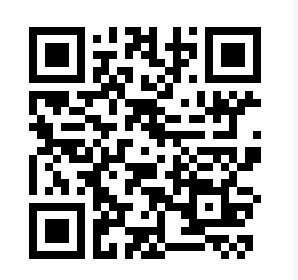Let me start this off with two short stories. See if you can relate to either one.
Story One:
My daughter is 24 years old and she lives with me. She started collage after high school but ran into trouble with her grades and had difficulty with her roommates. Since then she has signed up for two or three training programs which I paid for. In fact she finished one but was never able to obtain a job in that field. She does help around the house, but I find that often I am still cleaning up behind her.
In the last few years things have gotten tougher for her. She ended up finding herself pregnant and her boyfriend, who also lived with his parents, was having trouble getting his life together. So for the good of my grandchild I agreed that after the wedding she and her husband could stay with me until they could afford to get their own place.
After my second grandchild was born, I was finding that my resources were getting strained. I had more than several discussions with the kids about contributing more to the household. They would promise to help out more but after a while I still find myself cleaning up after them and instead of them contributing to the house hold, they are often borrowing money from me. If they cannot take care of themselves, what would become of my grandchildren?
Story Two:
We were once a very proud people with an ancient culture. We lived close to the land and honored our families, our elders, and the mother earth. All that changed when the white man came. We had been at war with neighboring tribes for centuries, but the white man did not use the same rules and had terrible weapons. To the white man, a treaty was a tactical move to buy them time to regroup and attack again.
To preserve the lives of our people we agreed to move to the poorest lands. We were not able to continue to preserve our way of life and survive on these lands. Over time the US Government became sympathetic to our plight and started sending assistance to our people. This was a help, but it is not enough. Today the amount of money we receive per year from the government is about half that of the poverty level.
While just being born as one of my people entitles them to more money each month then many retired enlisted military, we continue to suffer from extreme poverty. Preferential hiring and promotion considerations as well as the free tuition to universities all over the country have had little impact to change this situation. Today our people are still uneducated, unemployed, and living below the poverty level. The white man needs to do more to help our people, after all their ancestors stole our land and destroyed our way of life.
Main Body:
Every day we see folks down on their luck. Lost and moving through life without direction. Sometimes these folks are close to us, such as our children, our parents, maybe a cousin or a niece or nephew. If these people are part of our family, we will often invest huge amounts of time, money, and emotional energy into “helping them get on their feet”.
Other times they belong to a population group that has been excluded from main stream society due to racism or other cultural clashes. Maybe their ancestors fell to the expansion of ours, or maybe our ancestors purchased them as slaves from others in their tribes.
In all these cases we feel for them and their plight. We seek to do what we can to assist them. In the hope to help them get on their feet, we provide loans for school that are never paid back, allow them to live in our homes rent free or at least at a financial loss. Our tax dollars provide them subsidence, our law makers require that they get priority for jobs, and even to do business with the government. However are we helping?
Well, if you understand the working of the PIFTB cycle, you will understand that you are not. See the whole reason people like this exist is because we as individuals and society allow them to do so.
Remember that human instinct starts with the perception of the moment to moment interactions we have with others. This perception is born from a number of factors such as individual personality, learned factors from the home environment, but is perpetuated by the reality that we feed it.
We have all heard of “Enabling”. In most cases we think of this as someone who purchases Alcohol for a Drunk or drugs for an addict. Unfortunately the more common form of Enabling takes a much more subtle form. In the name of helping out, we often cross the line from being helpful, to enabling. Once we start a cycle of Enabling, often time we can establish a LIFE LONG pattern of behavior that can only be broken in a rather drastic removal of any and all assistance in a person’s life.
Even with the removal of this assistance, it is common that the individual has become quite skilled at enlisting new sources to provide continued support.
Often we find that these individuals have a rather strong and unrealistic sense of entitlement. They frequently demand more from those that have already given so much, showing little gratitude except as a calculated move to manipulate.
If you are the average person, how can you really determine if you are helping or enabling? Well that comes down to taking an honest look at the person’s behavior over time. Has there been steady and systematic positive improvement? Or are you finding that cycles are repeating often going back to square one, or even getting worst? If you have not seen steady and systematic positive improvement, the odds are you are enabling.
So what do we do if we discover we are enabling? Well first of all, nothing, I say again, nothing changes a bad attitude as quickly as an empty stomach. Next, human are survivalist, especially those with an inflated sense of entitlement. It will amaze you how fast they will get on their feet once you stop feeding them. (Remember the story of the bird feeder?)
The point? Change the environment, change the behavior…
I look forward to your feedback…



